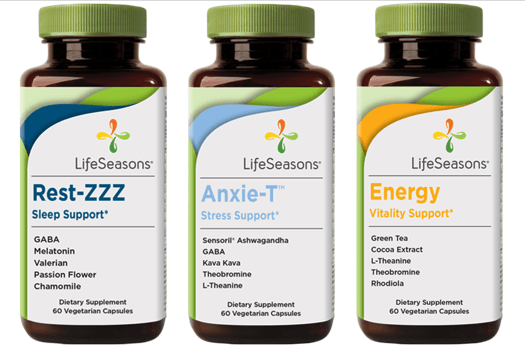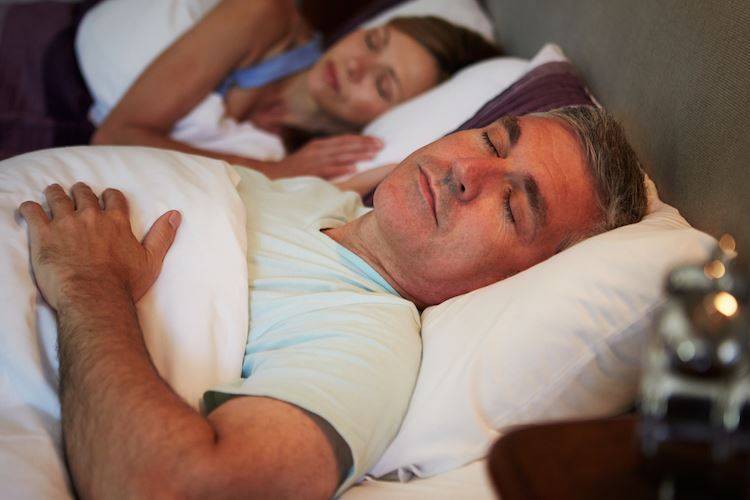The CDC estimates that one in three American adults does not get enough sleep. It sounds easy enough to get at least seven hours of sleep, but it’s not just about getting in bed at a reasonable hour; the quality of your rest also hinges upon what you do during your day, as well as in the hours before bedtime. What’s more, poor sleep habits can cost you your sex drive. When your body is sleep deprived, the brain stops producing sex hormones and replaces them with stress hormones instead, which can lead to a loss of libido.
These tips and tricks will help you learn how to fall asleep easier by getting into a better habit of falling into sleep so you can stay refreshed and enjoy a healthy sex life.
The Reasons Behind Your Sleeplessness
If you have trouble falling asleep and regularly find yourself staring at the clock at 3 AM, there could be a number of causes. Here are some of the most common reasons that Americans struggle to fall asleep:
Your evening alcohol intake: Did you know 20% of Americans use alcohol to help them fall asleep? That post-dinner glass of wine might have made it easier to drift off, but it’s also the reason you’re awake in the middle of the night (you can thank its impact on body chemicals for that!). Booze interferes with REM cycles and is a diuretic, meaning you might not be able to make it through the night without going to the bathroom. Once you’re up, it can be hard to fall back asleep.
Your daytime caffeine consumption: You already know not to order an espresso at the end of the day, but research has found that caffeine can disturb your sleep even when consumed six hours before bedtime. A 2015 study also showed that caffeine delays your body clock time and can reduce the time you spend in deep, quality sleep.
The pressures of your job: It doesn’t take an expert to tell you that stress and anxiety make it tough to sleep. In one survey, 43% of people said stress had interfered with their ability to sleep within the past month. It’s a vicious cycle; the less sleep you get, the more likely you are to feel stressed. It’s hard to quiet your mind, but experts recommend writing down your worries or meditating to help treat stress.
Artificial lights and screens: Before artificial lights were invented, humans woke up when the sun came up and went to sleep when the sun set. These days, we can be surrounded by brightness for as long as we want, which makes it tough to fall asleep. The blue light of our screens have also shown to delay the production of sleep chemicals like melatonin and keep you awake later. In the evening, keep your lights dim and avoid screens at least an hour before bedtime.
The Connection of Sex and Sleep
Sex and sleep are more interconnected than we may realize. While sex can improve the quality of your sleep (which, in turn, increases your libido), sleep deprivation decreases libido. Here are a few more reasons for the connection between rest and romance:
Lack of sleep affects energy.
When you’re sleep deprived, your brain cannot perform optimally. As a result, you feel less energetic and somewhat lethargic. While in this low-energy state, you probably won’t feel up to any sexual activity, which requires you to expend significant energy.
Lack of sleep affects mood.
Tiredness and crankiness often go hand in hand. When sleep-deprived, you also might find yourself feeling irritated with your partner or frustrated with your life in general. Minor inconveniences, like an annoying coworker or neighbor, start to really get under your skin. In such a mood, it can be difficult to focus on setting the mood for sex.
Lack of sleep affects testosterone levels.
Researchers from the University of Chicago found that, after a week of sleeping less than five hours a night, men had much lower levels of testosterone than when they were getting at least seven hours of sleep. With lowered testosterone comes low libido as well, creating yet another sleep-related obstacle to a healthy sex life.
Supplements You Might Like:
How to Overcome Bad Sleep Habits
Sleep Hygiene
To overcome sleep deprivation and its effects on your health and sex life, try implementing sleep hygiene practices into your evening routine. Sleep hygiene has nothing to do with cleanliness; it’s the practice of establishing behaviors that promote good sleep. The goal of sleep hygiene is to create habitual sleep triggers so your body can recognize that it’s time for bed and begin winding down naturally.
Some of these sleep hygiene tips may seem simple, but following them consistently can make a big difference.
Adhere to a Sleep Routine
Get in bed at the same time every night and wake up at the same time each morning. Your body’s circadian rhythm, which is the internal clock that tells you to feel tired or awake, can easily get messed up. By having a consistent bedtime, you keep the rhythm in sync with the time of day, ultimately helping you fall asleep more easily. It may take a while, but your circadian rhythm will adjust.
Make Your Bed a Place for Sleep
Train your brain to associate your bed with sleep and sleep alone. Only get in bed when you are ready to fall asleep and avoid sitting in bed to eat, read, watch TV, or catch up on emails. If you have the space, bring a comfy armchair into your room. Sit in it while you read or watch TV. When you are feeling tired, get in bed and turn off the lights. Eventually, your body will interpret being in bed to mean that it’s time to sleep.
Make Your Bedroom a Sleep Haven
The ideal sleeping environment is dark, cool, and comfortable. In the evening, set the thermostat to 69°F, dim any lights in the room, and turn on a fan or download a white noise app. If you happen to wake up in the middle of the night, avoid turning on any lights, which may wake your internal clock and make it harder to go back to sleep.
Enjoy Relaxing Activities Before Bed
It can be tempting to cram in some last-minute work or have a drawn-out emotional conversation with your partner before bed, but the hour before you sleep should be spent doing calming activities. Read a book, sip a calming tea, take a bubble bath, do a series of light stretches, or listen to some soft music. If you do the same thing each night, it will start signaling to your body to prepare for sleep.
Set Yourself Up for Sleep Success in the Daytime
Your sleep quality is determined by the things you do during your waking hours. The following can help you wind down with greater ease in the evening:
Exercise
Exercising on a regular basis (but not too close to bedtime) is a great way to help your body blow off steam and finish the day with restful sleep.
Cat Naps
Napping for longer than 30 minutes can disrupt your circadian rhythms and make it harder to get tired at night, but a quick 20-minute power nap in the middle of the day shouldn’t disrupt your sleep. Just try not to do it too close to bedtime.
Meditation
Meditation is a great way to wind down before bedtime. Take a minimum of 10 minutes to close your eyes, focus on your breathing, and clear your head. Try throwing in some aromatherapy for added effectiveness. Lavender oil has long been used to induce feelings of calm and sleepiness.
Tea and Walnuts
Digestion and sleep don’t mix. Eating a big meal too close to bedtime is sure to keep your body up at night, even if your brain is tired. If you must eat, opt for a handful of walnuts, which contain melatonin to help you fall asleep faster within the appropriate sleep setting. Chamomile tea can also calm your body and help your brain wind down. For maximum effectiveness, drink it two hours before bedtime.
Natural Supplements
Prescription sleeping pills come with a long list of undesirable side-effects that may not outweigh the sleeplessness they’re meant to treat. Benzodiazepines, a specific type of sleeping pill, can also become highly addictive and make it impossible to sleep without them. Natural sleep aids, such as Rest-ZZZ, are a great alternative. They offer some of the same sleep benefits without the side-effects. Take them 20 to 30 minutes before bedtime for maximum effectiveness.
As you practice good sleeping habits during the day and before bed, you’ll have a healthy libido and maximum energy for a gratifying sex life.
—————
PRODUCTS YOU MIGHT LIKE:











